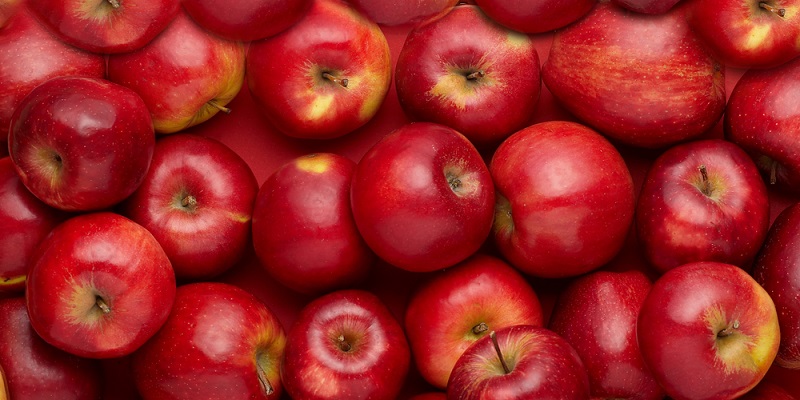Spotlight on Apples
“An apple a day keeps the doctor away” as the old saying goes, but are apples really good for you? In this post, we shine a spotlight on apples and look at the nutritional and health benefits of eating them.
Vitamin C
Perhaps the first you think of when it comes to Vitamin C is Oranges, and you wouldn’t be wrong, but did you know Apples are also rich in Vitamin C? This vitamin is a powerful natural antioxidant capable of blocking some of the damage caused by free radicals, as well as boosting the body’s resistance against infectious agents.
Vitamin B
Apples are also rich in B-complex vitamins (riboflavin, thiamin, and vitamin B-6) these vitamins are key in maintaining your red blood cells and keeping your nervous system in good health.
Phytonutrients
Those found in Apples can help regulate your blood sugar. Polyphenols in apple have been shown to lessen absorption of glucose from the digestive tract; to stimulate the beta cells of the pancreas to secrete insulin; and to increase uptake of glucose from the blood via stimulation of insulin receptors.
Quercetin
In a study published in the journal ‘Experimental Biology and Medicine’ (2006) research found that quercetin (one of the antioxidants found abundantly in apples) was one of the two compounds that helped to reduce cellular death that is caused by oxidation and inflammation of neurons, meaning eating apples is good for improving neurological health.
Good Bacteria
Intake of apples is now known to significantly alter amounts of two bacteria (Clostridiales and Bacteriodes) in the large intestine. As a result of these bacterial changes, metabolism in the large intestine is also changed, and many of these changes appear to provide health benefits. For example, due to bacterial changes in the large intestine, there appears to be more fuel available to the large intestine cells (in the form of butyric acid) after apple is consumed.
Dietary Fibre
According to the World Health Organisation, high levels of dietary fibre can help prevent weight gain and apple are in abundance of dietary fibre. Not only can fibre help control our weight, Australia’s National Health and Medical Research Council encourages optimum fibre intake to reduce the risk of conditions like diabetes, cardiovascular problems and certain cancers. Plus enough fibre each day is essential for good digestive health.
Want to get more Apple goodness in your diet? Here’s how:
- Look for firm fruits with strong coloring and less bruising (aka damage – check for holes etc.)
- For Varieties, remember that Red and Golden Delicious are among the sweetest apples. Braeburn and Fuji apples are slightly tart, and Gravenstein, Pippin, and Granny Smith apples are the most tart, but retain their texture best during cooking.
- Whole apples are a much better nutritional choice than apple juice. Not only are whole apples richer in dietary fiber, but the current processes of juicing seem to drastically reduce the polyphenolic phytonutrient concentrations originally found in the whole fruit.
- Apples can be stored for relatively long (3-4 months) periods of time. Cold storage at low refrigerator temperatures (/2-4 degrees Celsius) is able to help minimize loss of nutrients.
- The skin of the apple is unusually rich in nutrients, and even if the recipe you’ve chosen requires peeled apples, consider leaving the skins on to receive the unique benefits found in the skins.
- To prevent browning when slicing apples for a recipe, simply put the slices in a bowl of cold water to which a spoonful of lemon juice has been added.
- Here are a few ideas for serving: add diced apples to fruit or green salads; dress up a cheese platter with some fresh slices of apple; or why not just eat them as a snack alone?
